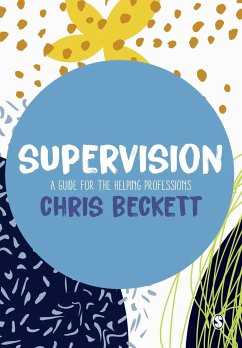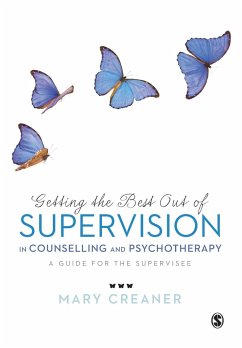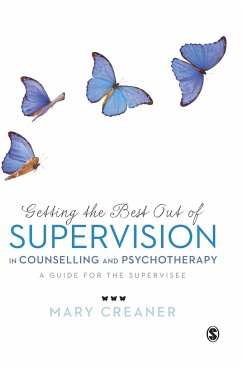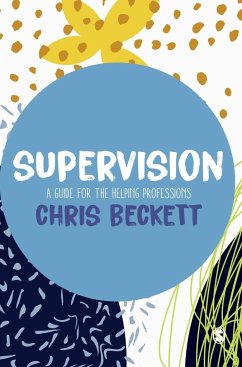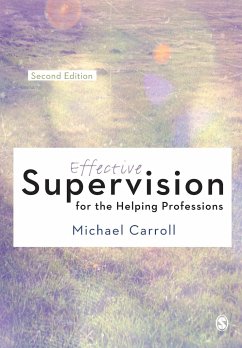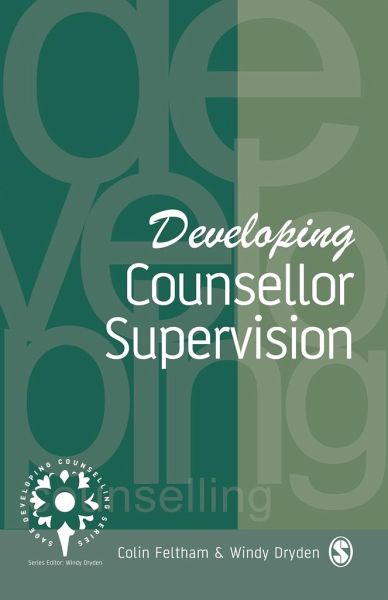
Developing Counsellor Supervision
Versandkostenfrei!
Versandfertig in 6-10 Tagen
40,99 €
inkl. MwSt.
Weitere Ausgaben:

PAYBACK Punkte
20 °P sammeln!
Seminars by Professor Windy Dryden. See the man live and in action. To find out more and to book your place go to www.cityminds.com________________________________________`It is a fairly well established clich[ac]e that while supervision is recognised as a crucial component of good practice in psychotherapy and counselling, there is correspondingly little written about it... [this book is] a good step in redressing the balance... It is a practical, didactic and generic view of how to do supervision... giving a fairly comprehensive account of 30 of the formal skills that all supervisors probabl...
Seminars by Professor Windy Dryden. See the man live and in action. To find out more and to book your place go to www.cityminds.com
________________________________________
`It is a fairly well established clich[ac]e that while supervision is recognised as a crucial component of good practice in psychotherapy and counselling, there is correspondingly little written about it... [this book is] a good step in redressing the balance... It is a practical, didactic and generic view of how to do supervision... giving a fairly comprehensive account of 30 of the formal skills that all supervisors probably use whether consciously or not... The book discusses each of the skills, giving examples as well as practical suggestions as to how to approach difficult issues... directed principally at counsellors, it is a book to dip into when faced with a panic about a specific issue' - Therapeutic Communities
Supervision is a professional and ethical necessity for all counsellors, providing them with consultative and supportive aid while protecting clients from potential abuse - yet relatively little has been written on the subject. This volume aims to redress that balance.
Encouraging, yet sensitive to the difficult issues that frequently arise in supervision, the book contains practical suggestions, plus useful appendices, to help practising and trainee supervisors develop and enhance the skills they need to be successful in their work. The authors cover such key areas as creating a supervisory alliance, fostering the supervisory relationship, the use of tape-recording, highlighting supervisees' strengths and weaknesses, and protecting the client and counsellor.
________________________________________
`It is a fairly well established clich[ac]e that while supervision is recognised as a crucial component of good practice in psychotherapy and counselling, there is correspondingly little written about it... [this book is] a good step in redressing the balance... It is a practical, didactic and generic view of how to do supervision... giving a fairly comprehensive account of 30 of the formal skills that all supervisors probably use whether consciously or not... The book discusses each of the skills, giving examples as well as practical suggestions as to how to approach difficult issues... directed principally at counsellors, it is a book to dip into when faced with a panic about a specific issue' - Therapeutic Communities
Supervision is a professional and ethical necessity for all counsellors, providing them with consultative and supportive aid while protecting clients from potential abuse - yet relatively little has been written on the subject. This volume aims to redress that balance.
Encouraging, yet sensitive to the difficult issues that frequently arise in supervision, the book contains practical suggestions, plus useful appendices, to help practising and trainee supervisors develop and enhance the skills they need to be successful in their work. The authors cover such key areas as creating a supervisory alliance, fostering the supervisory relationship, the use of tape-recording, highlighting supervisees' strengths and weaknesses, and protecting the client and counsellor.










